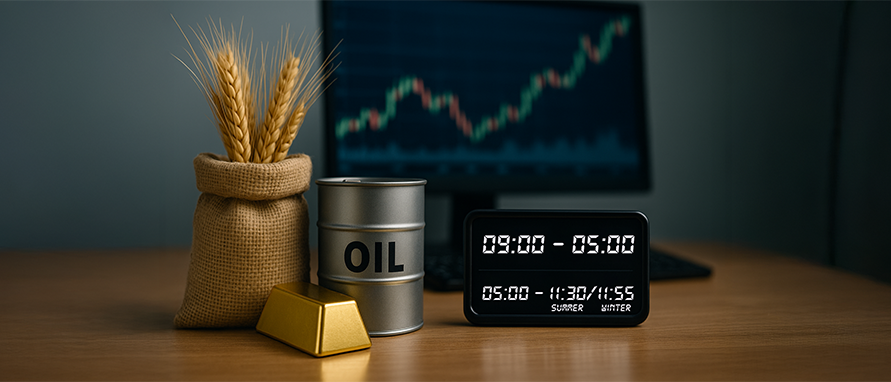Commodity market timings define the specific windows during which different commodities can be traded on Indian exchanges, making them an important operational detail for market participants to understand.
In India, commodity trading is conducted in two distinct sessions. The first is the morning session, which runs from 9:00 AM to 5:00 PM, and the second is the evening session, which begins at 5:00 PM and extends until 11:30 PM, or 11:55 PM when US Daylight Saving Time is in effect.
A key distinction exists between agricultural and non-agricultural commodities. Most agricultural commodities, particularly those traded on NCDEX, are available only during the morning session and align with domestic market hours. In contrast, non-agricultural commodities such as bullion, base metals, and energy contracts continue trading into the evening session on MCX, reflecting their linkage to international markets. Certain globally influenced agricultural commodities, including cotton, may also remain open beyond the standard agri session, typically up to around 9:00 PM, subject to contract specifications.
Together, these staggered trading hours accommodate both domestic supply-demand factors and global price movements, which plays a role in how orders are placed and managed across different commodity segments.



.jpeg)












